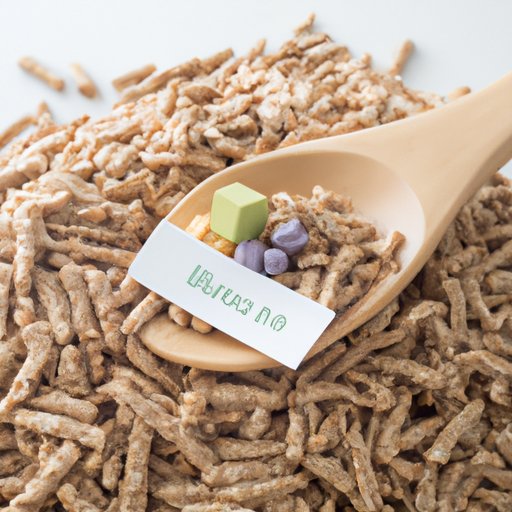Introduction
A high fiber diet is one that includes a variety of foods that provide a significant amount of dietary fiber. Dietary fiber is an important part of a healthy diet, as it helps to promote regularity and can aid in digestion, weight management, and overall health. There are many potential benefits to adding more fiber to your diet, including improved digestive health, increased satiety, and better weight loss results.

How to Increase Fiber Intake in Your Diet
The most effective way to increase your fiber intake is to focus on eating whole foods that are naturally high in fiber. These include fruits, vegetables, legumes, nuts, seeds, and whole grains. Eating a variety of these foods can help you meet your daily fiber needs. Additionally, there are some easy tips to help you get more fiber in your meals.
For example, adding a few tablespoons of chia or flaxseed to your morning smoothie or yogurt can add a boost of fiber to your breakfast. You can also replace white bread with whole grain breads and pastas, and opt for brown rice instead of white. Adding beans to soups and salads is another great way to up your fiber intake.

Understanding the Role of Fiber for Digestive Health
Fiber is essential for maintaining good digestive health. According to a study published in the American Journal of Gastroenterology, “dietary fiber has been consistently associated with reduced risk of various gastrointestinal disorders, including constipation, diverticular disease, and colorectal cancer.” Fiber helps to keep your digestive system functioning properly by absorbing water and forming bulk in the intestines, which helps to move food through the digestive tract more efficiently.
In addition, fiber helps to keep your gut bacteria balanced, which can help to reduce inflammation and improve immunity. It can also help to reduce the risk of developing certain diseases, such as type 2 diabetes and heart disease.

Eating for Healthy Weight Loss with a High Fiber Diet
Including more fiber in your diet can also be beneficial for weight loss. Studies have shown that people who eat a high fiber diet tend to lose more weight than those who don’t. This is likely because fiber helps to keep you feeling full for longer, so you’re less likely to snack or overeat. Additionally, studies have found that fiber can help to reduce the absorption of fat from food, which can lead to lower calorie intake.
If you’re looking to incorporate more fiber into your diet for weight loss, start by focusing on adding more vegetables, fruits, and whole grains to your meals. A few meal ideas could include oatmeal with berries and nuts for breakfast, a salad with beans and grilled chicken for lunch, and roasted veggies and quinoa for dinner.
The Best Fiber Supplements to Add to Your Diet
If you’re having trouble meeting your daily fiber needs with food alone, you may want to consider adding a fiber supplement to your routine. Fiber supplements come in many forms, including powders, capsules, and tablets. They typically contain either psyllium husk, glucomannan, or a combination of both. Psyllium husk is a soluble fiber that helps to promote regularity, while glucomannan is a type of soluble fiber that helps to slow digestion and increase satiety.
When choosing a fiber supplement, make sure to look for one that is made from natural sources and free from additives, preservatives, and artificial sweeteners. Additionally, it’s important to drink plenty of water when taking a fiber supplement, as it can cause constipation if not taken with enough water.
Conclusion
A high fiber diet can offer many potential benefits for health and wellness, including improved digestive health, increased satiety, and better weight loss results. To increase your fiber intake, focus on eating more whole foods that are naturally high in fiber, such as fruits, vegetables, legumes, nuts, seeds, and whole grains. Additionally, you may want to consider adding a fiber supplement to your routine. By incorporating more fiber into your diet, you can experience the many benefits that dietary fiber has to offer.
(Note: Is this article not meeting your expectations? Do you have knowledge or insights to share? Unlock new opportunities and expand your reach by joining our authors team. Click Registration to join us and share your expertise with our readers.)
